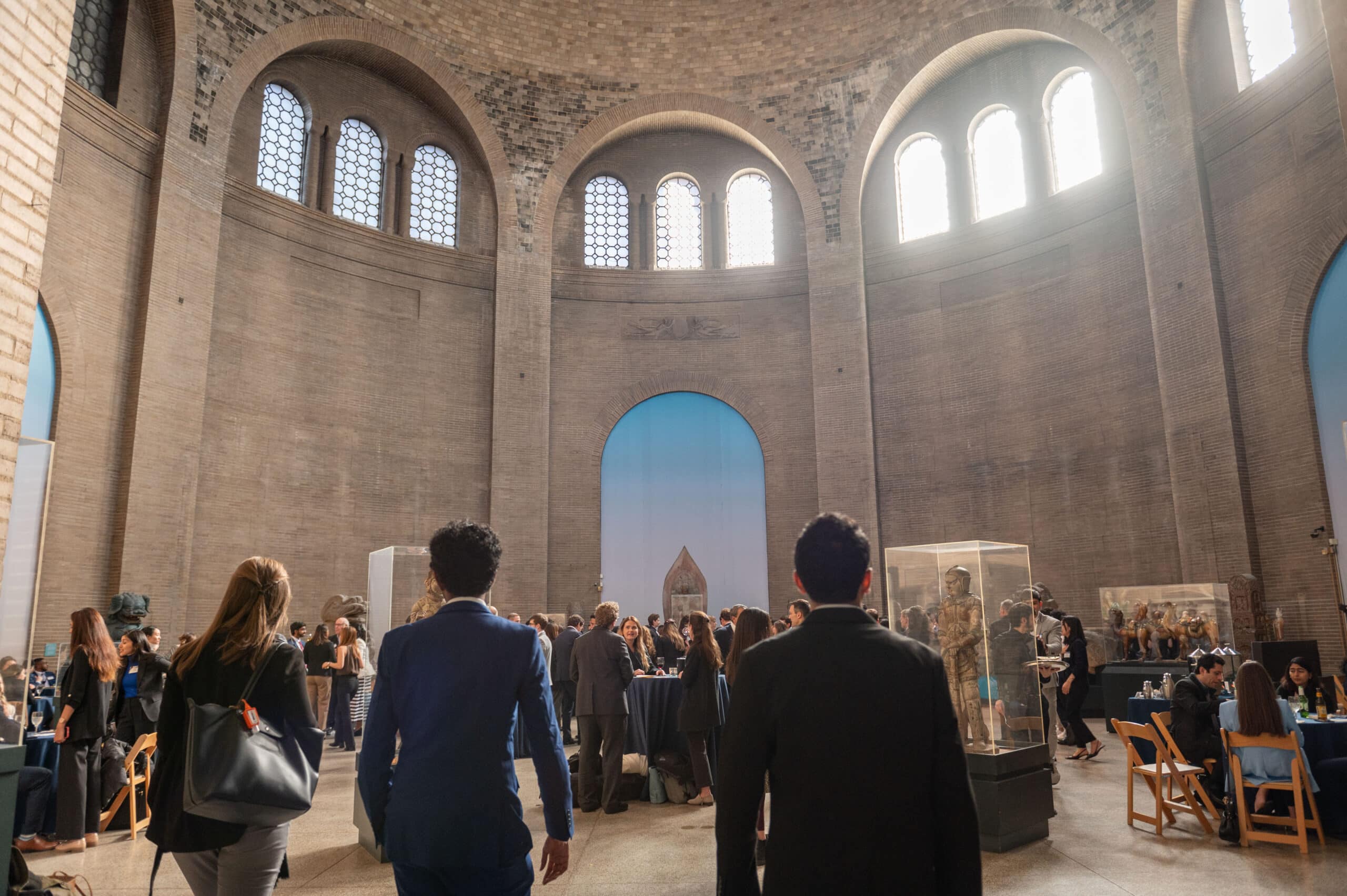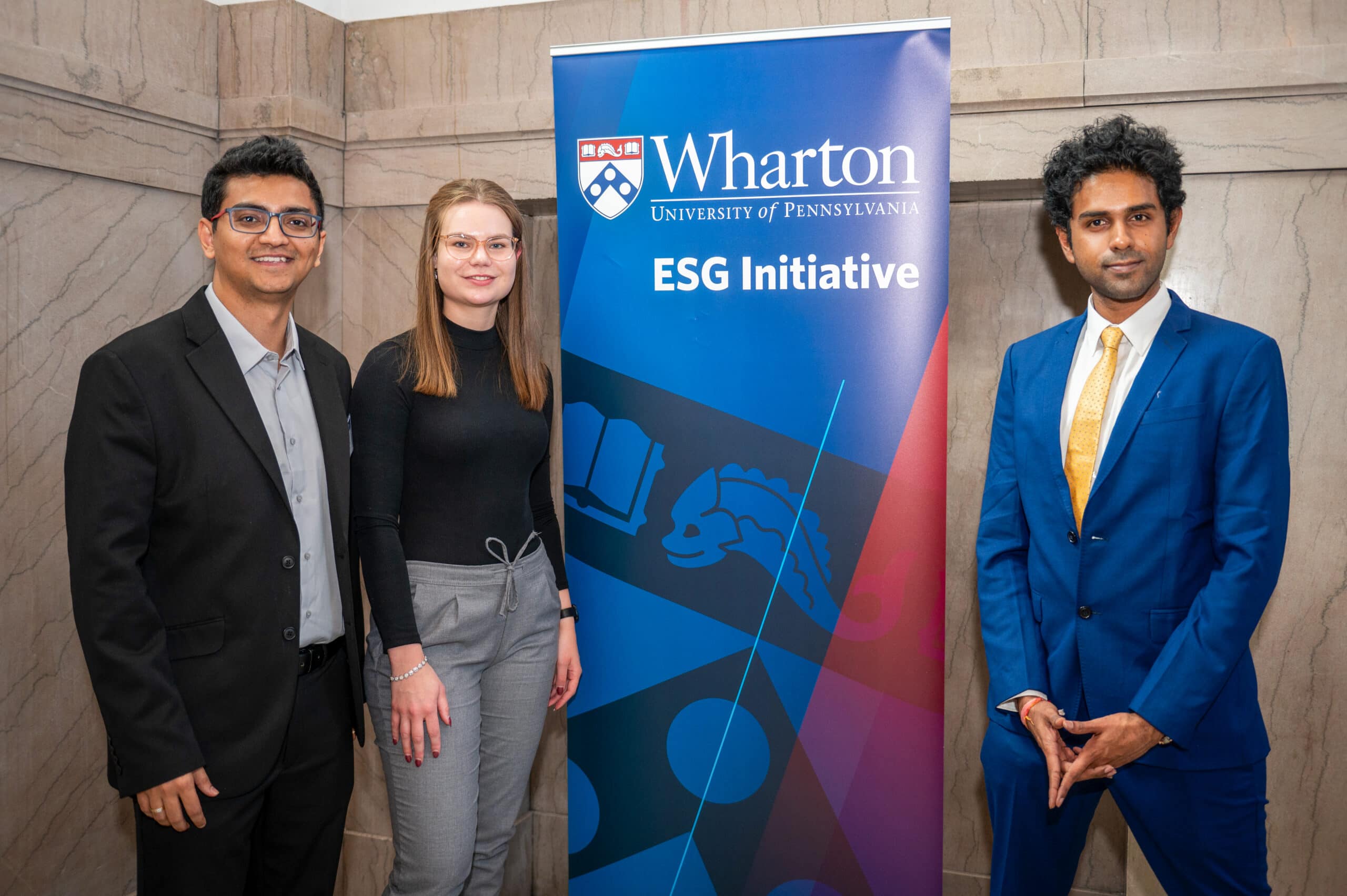Turner Impact Portfolio Challenge
Friday, June 14th 2024
This year marked the sixth year of the Turner Impact Portfolio Challenge (TIPC). It is an ESG investment competition for students that takes approximately six months and is organized by the ESG Initiative at the Wharton School. The event is sponsored by Bobby Turner and Bank of America. The goal of the competition is to increase interest in sustainable and impact investing across all asset classes. 175 students (in 40 teams) from 16 universities across the U.S participated in the competition this year.
Each team consists of three to five members. The application deadline was on October 8th, 2023, before we officially started at the end of October. At this point, the four of us also received precise instructions on the scope of our portfolio and the thematic focus areas that our investments should cover. Each team had until mid-December to formulate the Investment Policy Statement (IPS). The next step was to define specific investments and develop our strategy. At the same time, we had to think about topics such as greenwashing and monitoring. Then, in mid-February, we submitted our investments along with our “narrative,” a written elaboration of our strategy. And then, we had to wait and see whether we made it to the final. At the beginning of March, we received the email that we were among the top 4. Over spring break and the following weeks until the beginning of April, we had to prepare for the final in Philadelphia. While we were allowed to make changes to our investments and our strategy, we also had to create a presentation. Of course, this needed to be practiced as well. The same applies to the Q&A part afterward.
We flew to Philadelphia on April 4, 2024, and presented our portfolio to the jury the following day. As always, our flight was delayed by around 2 hours. We arrived later in the evening and only had time to check into the hotel, have dinner, do two rehearsals before going to bed.
The day of the final began with breakfast, followed by several opening remarks. Afterward, we and the other three finalists had a career talk with our jury members (Bonnie Treichel, Mary Stokes, and Nicholas Ashburn) followed by lunch. After that, we finally had the presentations. Before the winner was announced at Penn Museum, we received some general feedback on the presentations and the Q&A part. I am proud to saye that my team received the 2nd place.
Since the exact details of the investment guidelines must remain secret, I can not share how we chose our investments or strategies. Instead, I will give you an insight into what I learned during the process.
Let’s start with the “hard skills,” or where I was able to deepen my knowledge from the lectures. Last fall, I attended a lecture on “Global Investment Management” (GIM). The course covered portfolio construction and optimization. Something that naturally benefited us here, as we also had to decide how much money we wanted to allocate to which asset class and how we could best align risk and return with our risk appetite. Of course, we also had to consider how the various asset classes would develop throughout different economic cycles and how we could exploit or offset this. Although we learned something about ESG and impact investing in GIM, my “Impact Investing” lecture was more helpful. I audited this lecture during the spring semester. This means I took part in the lecture but did not receive a grade. I was more or less a visitor. Initially, I didn’t want to attend this lecture until next year, but I decided to move it forward due to the competition. And it was worth it. We talked, for example, about the IRIS+ framework or the IRIS+ taxonomy. Of course, that’s just one example. But what pleased me most was that it was often emphasized how progressive Europe is in this regard. Considering my central bank background, this was almost every time a compliment. TIPC enabled me to apply the theoretical knowledge I had acquired in the lectures in “real life.”
Now, let’s look at the “soft skills” I gained during the competition. Registering for such a long competition, especially alongside lectures, is time-consuming and exhausting. Good resource and time management are essential. Of course, you also have to consider that it was a team project. This means that different schedules have to be coordinated. It is also not always easy to work together as a team. Various ideas, visions, and views have to be reconciled. On the other hand, this is the best way to learn and master collaboration.
What is my overall conclusion of the competition?
It was an exhausting time, especially when you also have to deal with everyday university life – but it gave me a perfect opportunity to apply the knowledge I had learned in a more practical way and at least gain some insight into the work of a portfolio manager. It’s also always a good decision to improve your teamwork skills. The competition was a valuable and very educational experience, which will undoubtedly help me in the future.
If anyone has additional questions about the competition, please contact me!

The Wharton School, University of Pennsylvania

Arrival at Penn Museum

After a long day at Wharton School

